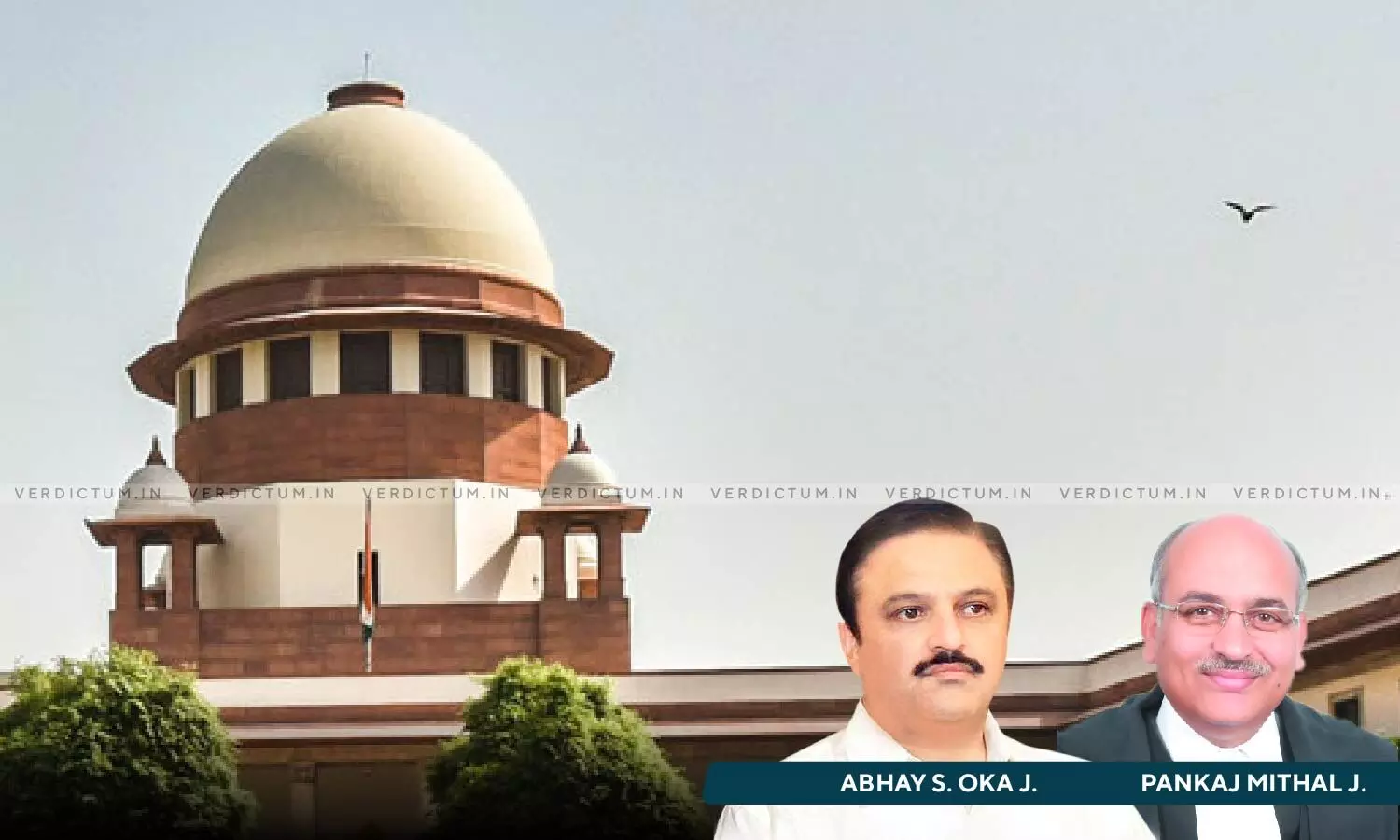
Eye-Witnesses Cannot Be Disbelieved Merely Because They Made No Attempt To Save Deceased Or Resist Accused : SC
 |
|In a recent decision, the Supreme Court observed that eye-witnesses in a murder case cannot be disbelieved merely because they did not save the deceased or resist the accused.
The Court observed thus while it affirmed the conviction of two accused under Sections 34 and 302 of the Indian Penal Code, 1860 (IPC).
The Bench comprising Justice Abhay S. Oka and Justice Pankaj Mithal observed, "Merely because they made no attempt to save the deceased or resist the accused is no ground by itself to disbelieve their case. The accused were carrying sticks and a gun."
Advocate T. Mahipal appeared for the Appellant and Advocate Abhinav Mukerji appeared for the Respondents.
In 1997, several individuals, including the first informant (Prosecution Witness 4), encountered the Accused while walking to a train station. Prosecution Witness 4 recognized Accused 1 and warned the deceased to avoid him. Prosecution Witness 5 and others witnessed the Accused assaulting the deceased and PW4, resulting in the deceased's death from a gunshot wound.
Following their conviction in the Trial Court for various offences under the IPC, Accused 1 and 2 filed separate appeals to the High Court. Both appeals were dismissed. Aggrieved, the Appellants approached the Apex Court.
The Court noted that while Accused No. 3 was charged solely with murder under Section 302 of the IPC, Accused Nos. 1 and 2 were also charged with common intention under Section 34.
The Court framed the following issue: “whether the Appellants' conviction can stand when the main culprit, who inflicted the fatal injuries, was not charged under Section 34”.
The Bench observed that Section 34 introduces the concept of vicarious liability. It allows for the punishment of individuals who share a common intention with the actual perpetrator of the crime, even if they did not directly participate in the act itself. In this case, the Court noted that the common intention to harm the deceased was established, and since the bullet fired by Accused No. 3 ultimately caused the death, Accused Nos. 1 and 2 could be held liable under Section 34.
Importantly, the Bench observed that Section 34 does not require proof of prior conspiracy or premeditation. The common intention can be formed just before or during the act itself. Therefore, even though Accused No. 3 was not charged under Section 34, the conviction of Accused Nos. 1 and 2 for murder with common intention can be justified based on their shared culpability in the death of the deceased.
“Section 34 essentially introduces vicarious liability. In a given case, where the offence is punishable under Section 302 of IPC, when the common intention is proved, but no overt act of assaulting the deceased is attributed to the accused who have been implicated based on Section 34, vicarious liability under Section 34 will be attracted”, the Bench noted
The Court rejected the Appellants’ argument that their conviction should be overturned due to the failure to examine certain eyewitnesses. However, the Court observed that five eyewitnesses were examined, all of whom were consistent in their account of the events. They testified that the Appellants were present at the scene and participated in the assault, while the Accused no. 3 fired the fatal shot.
The Court added, “Merely because they made no attempt to save the deceased or resist the accused is no ground by itself to disbelieve their case. The accused were carrying sticks and a gun. Therefore, the conduct of the appellants cannot be said to be unnatural”.
Although the Appellants pointed out minor inconsistencies in the witnesses' statements, the Bench concluded their testimonies to be credible and of high quality. The Court also noted that the eyewitnesses are close relatives of the deceased, but this fact alone does not discredit their accounts.
Furthermore, the Bench emphasized that the eyewitnesses who were not examined were not independent, potentially justifying their exclusion. Ultimately, the Bench held that the quality of the available eyewitness testimony outweighs any concerns about the missing witnesses.
Additionally, the Court observed that the Appellants' presence and actions together with Accused no. 3, coupled with the availability of time for planning, clearly demonstrate a "meeting of the minds" and a common intention to harm the deceased. Their conviction by the Trial Court was justified.
Accordingly, the Court dismissed the Appeals.
Cause Title: Maheshwari Yadav & Anr. v The State of Bihar (2023 INSC 1068)
Appearance:
Respondent: Advocates Bihu Sharma, Pratishtha Vij, Mohit Prasad.